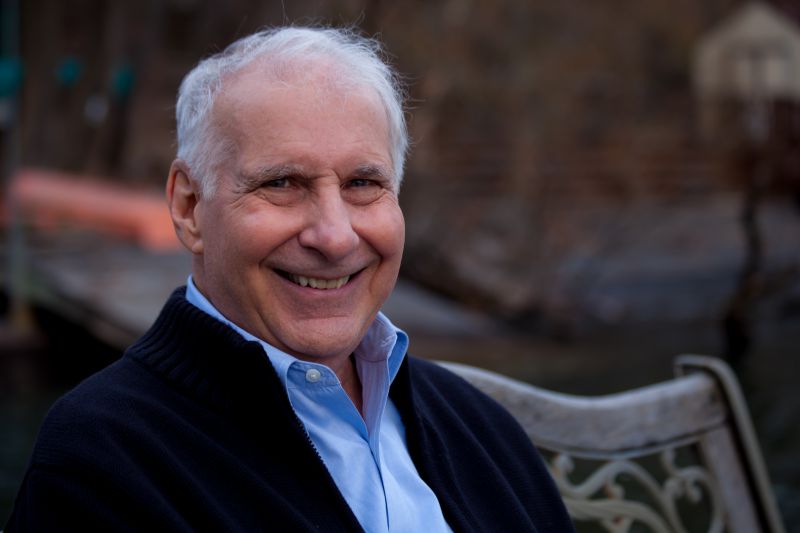How to Be Helpful to Almost Anyone, Anytime
- December 21, 2010
- / Dr. Peter Breggin
- / blogs,huffingtonpost

By Dr. Peter Breggin
12/21/2010
Want to be helpful to almost anyone under almost any circumstances?
Want to be a better friend, husband or wife, doctor or teacher, therapist or police officer?
Maybe you just want to make this holiday season as pleasant as possible for everyone around you.
Almost every kind of help begins with building a positive relationship. And for many kinds of help, a good relationship is the single most helpful thing you can offer. But what makes for a positive or good relationship?
To create the possibility of a genuinely good, and even wonderful and inspiring relationship, you have to begin with your attitude toward yourself and the other person — and ultimately your attitude toward human beings.
Relationships can make or break how we feel about ourselves. A few minutes, even a few seconds, of exposure to someone who is emotionally harmful can be devastating. A look of distain, a few cutting words, can strike us to the core. We’ve all had that experience. But the reverse is true as well. A smile that envelopes us! A few words of interest or caring that touch us! A few seconds or minutes of exposure to someone who is emotionally positive toward us can be uplifting. I was reminded of this a few days ago when a waitress in a diner who didn’t even know our names — we knew her name — gave me and Ginger a holiday card to thank us for brightening her work on the few days each week we were her customers.
How do we bring out the best in ourselves so that we will bring out the best in others when we meet them? I could talk about valuing ourselves and the other person. I could talk about feeling self-esteem and then esteeming the other person. I could talk about being kind or thoughtful, and about listening. Nothing wrong with all of that, but it does not get to the essence of a relationship.
Human relationships thrive when two or more people recognize in each other and in themselves something of such richness and importance that it defies language. It can be seen in a glance and felt in a touch, but words pale beside it because it has to do with something greater than ourselves and our means of communication.
In the Judeo-Christian tradition, we are told to love one another because we are all children of God. More specifically, the Quakers speak of “greeting that of God” in each other.
Of course you don’t have to believe in God to have inspired, uplifting relationships — but you have to believe that human beings can and should treasure each other. When human beings see each other as having such special and unique value, they will bring out the best in each other — and their feelings will overflow to others as well.
This “spiritual spark” that can be instantly seen and felt by the other is of course only the beginning. It is a greeting. But it is not superficial or shallow. Even if it lasts only moments in the greeting of a stranger, it is real. It is also the same stuff upon which deeper relationships are built — the treasuring of one another.
You don’t have to worry about how to communicate that you treasure the other person. Just enjoy the feeling and it will shine forth. You will become a source of love.
When one human being treasures another, a relationship starts. When people treasure each other, they become immersed in a spiritual relationship. It starts with the spiritual spark, then grows as each person learns to stay in touch with, express and then acts upon these feelings through everyday realities of disappointment and conflict. In therapy with couples, from the first day, I help people to get in touch with whatever underlying “spark” remains, and then I help them learn how to nurture this treasuring of each other as they find better ways to communicate and to deal with conflict.
Is this beyond your reach? This is not beyond the grasp of anyone. Within us there is a glut of negative emotions and thoughts. But we can dig deeply into ourselves to find what I believe lies beneath our emotional junk like gold beneath the Earth’s crust. That core is the desire to love and be loved. And when you find that core — that soul, spiritual being or human identity that you are — you will realize that of course it’s inside all of us. You will realize that as much as you or I deserve to be treasured and to treasure other human beings, so does every other human being. Finding our inner worth as a person isn’t selfish or self-centered, it’s learning about our common spiritual nature, it’s dipping into the knowledge that human life in and of itself has value, including ours and yours — yours and mine — and that knowledge enables us to have spiritually inspired relationships.
Is this Pollyannaish? Is it even dangerous to greet people as if they are treasures and then to be spiritually embracing of them in longer-lasting and more meaningful relationships? There are times for restraint. In regard to greeting “that of God” in causal strangers, it can be dangerous to walk down a big city street looking like an undefended innocent who only wants to be nice to people. I unintentionally experimented with this on Park Avenue one early evening. I had been living in the country for a few years and had grown accustomed in the countryside and my small town to walking about as if I were glad to meet casual passersby. Not in New York City! Within three blocks I was accosted three times for various nefarious purposes, including drugs and sex. The moment I restrained the openness, people on the streets of New York left me alone on the remainder of my walk. But even this is not entirely a negative lesson; it shows that people will instantly recognize the attitudes you carry with you toward other people whom you meet.
Just as it can be physically dangerous to look too vulnerable on a city street, it can also be spiritually and even physically dangerous to persist in trying to make a loving relationship with someone who abuses or rejects you. But in my experience, a person who seeks to treasure other human beings will be more sensitive to potential abusers and more readily able to take defensive actions in his or her personal life. This is because your attitude of treasuring will make the contrast more stark between your desires and what you are receiving in return.
So if you want to help almost anyone under almost any circumstances — as a friend, husband or wife, teacher, therapist, store clerk or waiter — find it in your heart to treasure the people you meet. Find in yourself and then in them that which is best about being human, that which is special and unique to human life, that which is sacred and, if you so choose, that which is of God. Offer that possibility to another human being — that they are beings of such great worth — and you will not only have helped them, you will have offered them the possibility of a life as good as possible on this Earth. And as you bring out the best in yourself to bring out the best in them, you will have no doubt that loving human relationship is the heart of everything good and everything that heals in our lives.
Originally published in The Huffington Post.
 Psychiatric Reform Accomplishments
Psychiatric Reform Accomplishments